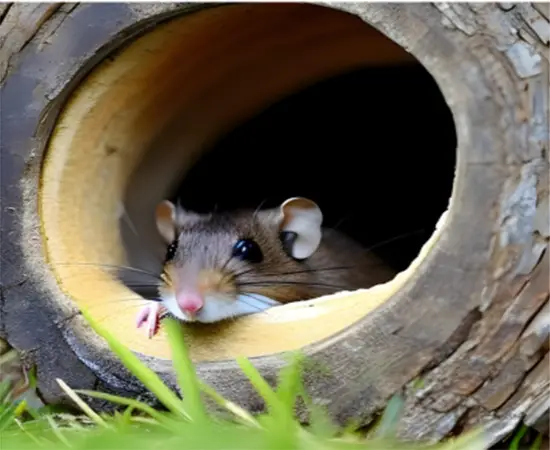Yes, rodents hibernate. Hibernation is a fascinating phenomenon observed in various animal species, including rodents. These small creatures have their unique ways of adapting to changing seasons, and hibernation is one such survival strategy that helps them endure harsh winter conditions. In this article, we will delve into the world of rodents, exploring their hibernation habits, the physiological changes they undergo, and the ecological significance of this natural phenomenon.
Explaining the Behavior of Rodents
Rodents are a diverse group of small mammals that belong to the order Rodentia. They are known for their constantly growing incisor teeth and remarkable adaptability, which has allowed them to thrive in various environments worldwide. From tiny field mice to squirrels and beavers, rodents come in different shapes and sizes, but they share common characteristics that define their identity.
What is Hibernation?
Hibernation is a state of inactivity and metabolic depression that certain animals enter during the winter months or in response to adverse environmental conditions. It is an energy-saving mechanism that allows animals to survive when food is scarce and temperatures are low.
Do all rodents hibernate?
Not all rodents hibernate, but some species have evolved to do so. The hibernation behavior depends on factors like geographical location, availability of food, and the specific rodent species. When the conditions are right, these small mammals trigger their hibernation phase to conserve energy and increase their chances of survival during challenging times.
Entering the Hibernation Phase
Before entering hibernation, rodents engage in behaviors to prepare themselves for the long period of dormancy. They start by consuming more food to build up their fat reserves, which will sustain them throughout the hibernation period. As the days get shorter and temperatures drop, rodents sense these environmental changes, signaling them to slow down their metabolic processes.
The Hibernation Period
The duration of hibernation can vary depending on the rodent species. Some may hibernate for a few days, while others can remain in this state for several months. During hibernation, rodents significantly reduce their metabolic rate, allowing them to survive without consuming food and water.
Physical Changes During Hibernation
As rodents enter hibernation, their body temperature drops significantly, as does their heart rate and breathing rate. This reduced physiological activity helps them conserve energy. In some cases, their body temperature can match the ambient temperature, further saving energy.
Hibernation Strategies
Rodents adopt various strategies to optimize their hibernation experience. Torpor, a state of deep hibernation, allows them to lower their body temperature even further, enabling them to save more energy. Additionally, they use special areas in their burrows or nests to create safe and insulated hibernation spots.
Role of Brown Adipose Tissue
Brown adipose tissue (BAT) plays a crucial role in rodent hibernation. BAT is specialized fat tissue that generates heat when metabolized. During hibernation, rodents rely on BAT to maintain their body temperature, ensuring they stay warm despite the cold surroundings.
Hibernation vs. Aestivation
While hibernation is a strategy adopted to survive the winter, aestivation is a similar state of dormancy observed in response to extreme heat and dry conditions. Some rodents aestivate instead of hibernating, depending on their habitat and climate.
Interrupted Hibernation
There are instances when a rodent’s hibernation is interrupted. This can happen due to disturbances in their hibernation spots, changes in environmental conditions, or disturbances caused by other animals. Such interruptions can have consequences on their energy reserves and overall survival.
End of Hibernation
As winter ends and temperatures begin to rise, rodents wake up from their hibernation phase. This period is crucial as they need to replenish their energy reserves and find food and water to sustain themselves.
Environmental Impact on Hibernation
With climate change affecting seasonal patterns, rodent hibernation can also be impacted. Shifts in temperatures and weather conditions may disrupt their hibernation cycles, leading to potential consequences for their populations and ecosystems.
Benefits of Rodent Hibernation
Rodent hibernation serves essential ecological functions. It helps control rodent populations, allows them to survive harsh environmental conditions, and contributes to nutrient cycling and ecosystem dynamics.
Frequently Asked Questions
Which rodents hibernate?
Various rodents, including ground squirrels, dormice, and marmots, are known to hibernate.
How long do rodents hibernate?
The duration of hibernation varies depending on the rodent species, ranging from a few days to several months.
What happens if a rodent’s hibernation is interrupted?
Interrupted hibernation can have consequences on their energy reserves, and they may struggle to survive if they cannot find adequate food and shelter.
Can rodents wake up during hibernation?
Yes, rodents can wake up from their hibernation phase if environmental conditions change or they are disturbed.
Conclusion
Rodents, like many other animals, have fascinating survival strategies to endure adverse conditions. Hibernation is a remarkable adaptation that allows certain rodent species to conserve energy and survive the harsh winter months. By slowing down their metabolism and relying on brown adipose tissue for heat, these small creatures demonstrate nature’s incredible ingenuity.




